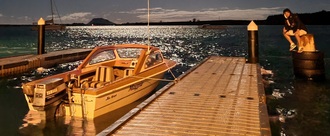-
Withdraw NZ from US operation supporting Israel’s war on GazaWhat is this operation? The New Zealand Government has deployed New Zealand Defence Force (NZDF) personnel to support the US and UK-led Operation Prosperity Guardian. The Operation was launched in December 2023 after the Houthi Movement in Yemen blockaded access to Israel via the Red Sea and attacked ships heading to or associated with Israel in response to Israel’s war on Gaza and US support for it.[2] The Houthis have said they’ll stop their attacks as soon as Israel agrees to a ceasefire, end its war crimes in Gaza and allow humanitarian aid to reach the people of Gaza.[3] As the name of the operation suggests, the US, UK, New Zealand and others claim to have launched this operation to protect shipping. Yet this ‘concern’ for maritime law and the ‘free flow of goods’ does not extend to Israel’s illegal sea (air and land) blockade of Gaza that has been going on since 2007. How is New Zealand involved? In January 2024 the Prime Minister, Minister of Defence, Judith Collins, and Minister of Foreign Affairs, Winston Peters, announced that New Zealand was deploying six members of the New Zealand Defence Force to join the US and UK-led operation.[4] At the time the Prime Minister said the deployment would conclude no later than 31 July 2024, even when directly asked if the deployment would be extended. But on 12 July the Minister of Defence and Minister of Foreign Affairs announced that the deployment would be extended till January 2025.[5] Exactly what NZDF personnel are doing is not entirely clear, but the Prime Minister has said they would provide “precision targeting” through gathering intelligence and the Defence Minister said they would assist in targeting Houthi bases that were involved in attacks on vessels.[6] US-led airstrikes targeting Houthis have killed a number of people and wounded many others.[7] Why are we opposed to NZDF involvement? 1. It aligns NZ with US militarism and Israeli war crimes In joining this US and UK-led operation New Zealand is not only involving itself in war in the Middle East, but it is aligning itself with the US and its support for Israel’s war on Gaza. Israel is currently committing genocide on the people of Gaza, and is perpetuating numerous other war crimes across Palestine. Over 38,000 people in Gaza are officially reported to have been killed, over half of them women and children, but experts have suggested the death toll will be significantly higher - estimated at 186,000 or more - taking into account thousands of people buried under the rubble and indirect deaths as a result of the destruction of health, food distribution and other infrastructure. [8] Israel is also blocking adequate humanitarian aid from entering Gaza, including desperately needed medical supplies and food for the population who are currently starving. The US is enabling Israel to continue its bombardment of the trapped population in Gaza by sending billions of dollars in military aid. 2. Israel is violating international law The International Court of Justice (ICJ) has ordered Israel to cease its activities and comply with its obligations under international law. The International Criminal Court is considering issuing warrants for arrest of the Israeli Prime Minister and Defence Minister for war crimes. Various bodies of the UN, most recently the ICJ’s advisory opinion[8], have declared that Israel is in breach of the most fundamental norms of international law, including operating an apartheid regime in the Occupied Palestinian Territories. The ICJ has said all States - that includes NZ - have obligations not to support and to prevent Israel's breaches of international law. 3. NZ Government's actions are hypocritical and risky Despite the fact that Israel is flagrantly breaching international law in the most horrific and inhumane way, our Government is putting its military might into maintaining international law rules that enable commercial shipping, and allege it is the Houthis who are disregarding international law, peace and stability. Rather than contributing to the pursuit of peace in the region, the Government has involved the NZDF in a situation which is at risk of expanding into wider regional conflict in the Middle East. 4. There is no democratic mandate The Government’s actions in deploying the NZDF do not represent the views and values of New Zealanders and the Government has no democratic mandate for this action. New Zealanders are proud of our track record maintaining independent foreign policy and standing up for equality, human rights and justice against the apartheid regime in South Africa.This Government is departing from those traditions and putting New Zealand on the wrong side of history, without giving New Zealanders a say. We don’t want the NZDF to be involved in a deadly military operation in the Middle East that has no end date. Rather than supporting Operation Prosperity Guardian, New Zealand should be putting all its efforts into ensuring the Israeli Government stops committing war crimes, ends its illegal occupation and apartheid policies imposed on the Palestinian people. References [1] Fran O’Sullivan. “Winston Peters’ Houthi Red Sea move brings NZ and the US closer” NZ Herald. 6 Jan 2024. [2] US-led coalition warns Houthis of ‘consequences’ after Red Sea attacks. Al Jazeera. 3 January 2024. [3] Who are the Houthis? A simple guide to the Yemeni group. Al Jazeera. 12 January 2024. [4] New Zealand deploying NZDF team to protect Red Sea shipping, 23 January 2024. [5] NZDF’s Red Sea deployment extended, 12 July 2024. [6] New Zealand to deploy Defence Force to Red Sea, 23 January 2024. [7] US and UK air strikes hit Yemen, Houthi-run TV reports, 7 June 2024. [8] Gaza toll could exceed 186,000, Lancet study says, 8 July 2024. [9] ICJ Advisory Opinion - On the legal consequences arising from the policies and practices of Israel in the Occupied Palestinian Territory, including East Jerusalem, 19 July 2024.6,184 of 7,000 SignaturesCreated by Te Kuaka, Peace Action and Justice for Palestine
-
Protect and support people with Functional Neurological Disorder!Functional Neurological Disorder is becoming a fast growing condition in New Zealand. While no one person is born with it, many have come to be diagnosed with FND with growing global awareness of this condition, its poor reaction to mrna vaccines, the lack of helpful and preventative treatment and breach of the code of patient rights. FND is a disabling and devastating condition. Symptoms range from a faint, to seizures, paralysis, pain, immobility to say a few, and that comes with a lot of psychological damage to one's self esteem. There are many cases of delayed or mistreatment from lack of understanding, including being locked away from family homes, being accused of being crazy, being told we deserve it, not being treated, gaslit, and difficult to get help, or having to wait years for proper assessment. For 37 years I believed I was epileptic and had fibromyalgia. FND was not widely considered at all then. This meant decades of mismanagement, mis-medication, career paths denied, and absolutely no treatment for the real condition. Because of those consequences, I have been - avoided in the street - as I was weaving from medication, yelled at by doctors because they did not know what was going on, accused of not taking my medicines, which I have always taken religiously. I have been subject to abusive situations because of the effects of the medications I did not need. Personally, I have been waiting for nearly 3 years to have the acknowledgement that I even require treatment, and the only reason it has happened THAT QUICKLY is because of the consistent follow up and bringing things to ACC attention. It is exhausting, stress inducing, and causes further harm to FND clients. While I have been compliant and have undertaken every possible process, I am still here, waiting for treatment, 3 years after diagnosis, 43 years after it started. As such, I call on the Ministry of Health, the Ministry of Disabled People, Ministry of Social Development and ACC to take these three actions. 1. They must adhere to the Code of Health and Disability Services Consumers' Rights in every manner regarding FND patient's, diagnosis, treatment and handling by all related staff, including management of patient records and expunged files or diagnosis, and supervision of medical applications used by practices for mismanagement and breach of patient privacy by mis-sharing patient information. 2. They must collaboratively discuss and compile treatment plans and support services for patients in a timely manner so as to prevent further chronic harm. 3. Inclusion of FND in its language and education policies, inclusive of medical staff, acc staff, social workers, and educators of medicine, to better facilitate healthy discussion and further beneficial research around this condition. There is no cure for FND, and while things continue to get worse at an alarming rate, the care in New Zealand is not keeping up. If the Ministry of Health, Ministry for Disabilities and ACC collaboratively create an early treatment plan it could help prevent FND from becoming chronically worse and in some cases, may even reduce symptoms for a short period of time. I want to see the Government put its people first. We deserve a good quality of life, with dignity and mana and with whanau around to support us. Not be treated like a burden and excluded from jobs, community and even medical care. I want to see our future moko be treated with respect and dignity when going into the medical system. These three steps can lead us towards a positive sustainable change within the health care system that will benefit all people living with FND. Join us by making the health care system more just for everyone! Sign this petition and share it with friends and family. Further reading: https://www.ninds.nih.gov/health-information/disorders/functional-neurologic-disorder. www.fndaware.nz bFM Interview https://95bfm.com/bcast/get-action-protect-and-support-people-with-functional-neurological-disorder-w-keremia-tairua-9th169 of 200 SignaturesCreated by FND AWARE
-
VUW: Divest from Israel and support PalestineOn Monday, July 8th, Te Herenga Waka students returned to their studies after a short break. That same day marked nine months of Israel’s genocidal campaign that has destroyed the studies, lives, and futures of the students of Gaza. According to research published in the Lancet journal on July 5th, "it is not implausible to estimate that up to 186 000 or even more deaths could be attributable" to the genocide. In past weeks, Israel continues its relentless attacks on civilians. As staff and students of Victoria University, we are appalled that since the closing of the 2023 academic year, no student in Gaza has been able to return to class, no lecturer to a lectern, no scientist to a lab. Not one of Gaza’s 12 Universities remains standing. This is scholasticide. Gaza university staff released an open letter on May 29th, 2024, calling upon “friends and colleagues around the world to resist the ongoing campaign of scholasticide in occupied Palestine”. On the same day, students of Gaza urged the students of the world to “raise the pace and ceiling of your struggle and your honourable stances, quantitatively and qualitatively, against the institutions, corporations, and governments that participate in the slaughter of our children, our students, and our people”. As members of the University community, we must respond to these calls for support and justice not only symbolically, but also through collective and institutional actions. It is with these aims in mind that we make the following demands of Victoria University: 1. Divest all funds held by the university and university foundation with ties to Israel Approximately $47,532 of the Victoria University Foundation's $109 million investment portfolio is invested in Israeli government bonds, which helps finance their military campaigns. These investments are made through ANZ Investments, who are exiting the market at the end of August, therefore the Foundation is seeking alternative fund managers in its place. The Foundation must ensure that it has no investments that tie it to the apartheid Israeli government, and companies that support and finance its genocide and illegal occupation. 2. Implement a financial and academic Boycott, Divest, Sanctions (BDS) policy The University can take a meaningful stance against Israeli apartheid by boycotting companies that finance Israel’s crimes, as well as ceasing collaboration and partnership with Israeli universities, in line with the recommendations of the BDS movement and the Palestinian Campaign for the Academic and Cultural Boycott of Israel (PACBI). 3. Establish scholarships and fellowships for Palestinian students and academics The University must offer opportunities for students and staff who have had their studies and careers violently interrupted either by the assault on Gaza or the punishing occupation and escalating settler violence in the West Bank. A fellowship was launched to support Ukrainian academics in 2022; the same should be done for those in Palestine. We, as students, academics, staff and university constituents, want to be part of a University that takes meaningful, material action against settler colonial violence – both in Aotearoa and elsewhere. The demands laid out in this letter are the bare minimum we could be asking of the institution that represents us. We amplify the call of our Palestinian counterparts, and we invite you, the University leaders, to join the collective struggle against settler colonialism, genocide, the denial of Palestinians' futures, and the silencing of their voices. Organisations signed on: • Student Justice for Palestine Pōneke • Te Aka Tauira—Victoria University of Wellington Students’ Association • Ngāi Tauira—Te Herenga Waka-VUW Māori Students’ Association • Ngā Rangahautira—Māori Law Students Association VUW • Victoria University of Wellington Feminist Law Society • Peace Action Wellington • VUW University Workers for Palestine • VUW International Socialists • VUW Climate Action & Resistance • Alternative Jewish Voices • Working Students Wellington • VicMuslims Club—Muslim Students Association • Wellington Community Justice Project • Asylum Seekers Equality Project1,496 of 2,000 SignaturesCreated by SJP Pōneke
-
TCDC and WRC: Stand with PalestineAs the Israeli military continues its bombardment and siege on the people of Gaza and throughout Palestine, and the US government continues its support by sending weapons and bombs to drop on civilians, the world is being called upon to act. The genocide we have witnessed over the past 9 months is only the most recent escalation of Israel’s decades-long oppression of Palestinians. As of 26 June, 37,708 Palestinians have been killed, at least 5,000 women and 7,800 children. 1.7 million people are internally displaced, and a high risk of famine persists while over 500,000 people face catastrophic levels of food insecurity due to Israel’s blockade on aid entering Gaza (UNOCHA). The observance of human rights and the condemnation of acts that breach those rights, namely acts of violence and terror against civilians, is an important pillar of our democracy, enshrined in the New Zealand Bill of Rights Act. Speaking up has moral and political weight. Failure to call out acts of violence and terror against civilians is not a neutral position. Furthermore, New Zealand is a member of the Convention on the Prevention and Punishment of the Crime of Genocide, which requires us to take action to prevent genocide. Having leaders who call out these atrocities and call for action is important and impacts our collective well-being. International law is persuasive and relevant to your decision-making. New Zealand is a member state and is bound by UN resolutions. Numerous resolutions have been passed, the most recent being UN Security Council Resolution 2728, adopted on March 25, 2024, calling for a ceasefire. 145 of the 193 member states of the United Nations recognise the state of Palestine as a sovereign state. But NZ, together with our brotherhood of English settler-colonial states (Canada, US, Australia and UK), are part of preventing official recognition and Palestinian statehood, and thus, deny the Palestinian people the right to have rights. This must change! New Zealand governments have taken a strong stance on international issues in the past, for example, in opposing apartheid South Africa. We must continue this legacy. We believe in our individual, collective and national moral responsibility to use our voice and power to stop the genocide. Many local bodies in Aotearoa and internationally are calling on governments to take decisive action. The more voices that join this call, the stronger it becomes. None of us are free until all of us are free! Justice for Palestine!476 of 500 SignaturesCreated by The Basket Hauraki
-
Ban Misleading Labelling for Vegetarian and Vegan ProductsWith the increase in the use of buzzwords on packaging, it is becoming unclear what is in our food unless you read through the entire list of ingredients. We want clear labelling and a ban on using vague and misleading terms. Consumers need to know what they are buying without reading everything on the packet, and this is particularly important for those with allergies. The current Food Standards Code provides a foundation for food labelling requirements, but it lacks specific provisions for vegan and vegetarian labelling, leading to ambiguity and confusion for consumers[1]. Introducing new provisions that standardise and clarify these terms would address these shortcomings, aligning with the Code's objectives of consumer protection and fair-trade practices. We envision a future where consumers can make informed, ethical, and confident choices about the products they purchase. By advocating for clear, standardised, and enforceable labelling regulations, we aim to eliminate ambiguity and ensure transparency in the labelling of vegetarian, and vegan products. [1]The current Food Standards Code Legislation ANZ can be viewed here: https://www.foodstandards.gov.au/food-standards-code/legislation Further reading: • https://www.foodstandards.govt.nz/consumer/labelling/Labelling-consumervalueissues • There are a number of products currently on the NZ market that have misleading labels, the most recent of which was reported by The SpinOff here: https://thespinoff.co.nz/kai/22-03-2024/vegan-advocates-claim-dessert-branding-misleading-mpi-says-otherwise • Animal genes are now being edited into soy beans. You can read more about that here: https://vegansociety.org.nz/animal-genes-in-soy-is-unacceptable/ • And also here: https://www.feedandgrain.com/grain-handling-processing/biotech-crops/news/15669206/moolec-science-receives-usda-approval-for-pig-protein-soybean1,422 of 2,000 Signatures
-
Massey University: Divest from GenocideIt has come to our attention that Massey University is complicit in genocide. The Massey University Foundation has $64 million invested in managed funds, of which a spokesperson has confirmed $7,105 has been invested in Israeli Government Bonds over the last three months. Within those three months, the Israeli government has bombed schools, attacked health infrastructure, fired missiles into refugee camps, and prevented aid from reaching Gaza, weaponising famine and disease against the people of Palestine. Even prior to your investment, Israel was already engaged in a programme of genocide. As of 6 June 2024, the World Health Organisation reported over 36,000 Palestinians killed— including more than 13,000 children—with more than 10,000 reported missing under rubble and 83,000 injured. Mass graves have been found outside Palestinian hospitals. Even these statistics are being reported as incomplete. These atrocities follow years of dispossession and systematic apartheid inflicted on the Palestinian people by the state of Israel. As of 2022, the people of Gaza already faced “inadequate access to clean water, sporadic electricity provision and [were] without a proper sewage system. Two thirds of the population lived in poverty.” This level of economic and infrastructural destruction at the hands of Israel meant 80% of the population were forced to depend on international aid to survive. Despite UN Resolution 194’s affirmation of Palestinian refugees’ right to return to their homeland, more than 6 million Palestinians live today in the diaspora, barred from their ancestral home. This Nakba (Catastrophe) has been ongoing for more than 76 years. Palestinians have been systematically slaughtered and expelled from their lands to make room for the expansion of illegal Israeli settlements, resulting in a settler-colonial system of oppression “maintained by Israel with the support of the international community.” This is what your investment condones and supports. Massey University, you are complicit in crimes against Gazans, against Palestinians, and against humanity. We, your students, including Palestinian students, pay you to receive an education we wish to be proud of, and you have used that money to help pay for genocide. As academics and university administrators from Gaza have reported after 8 months of incessant bombing, Palestinian civic infrastructure, schools, hospitals, libraries, museums and cultural centres - built by generations of Palestinians - currently lie in ruins. More than 5,479 students, 261 teachers, and 96 university professors have been killed alongside the destruction of all 12 universities in Gaza. Just as you have been cutting courses and jobs across your three campuses for ‘lack of funds,’ you have also been guilty of funding scholasticide in Gaza. Neither outrage, nor disgust are able to convey the full extent of how we feel. We make our demands on the back of a string of student activism across Aotearoa. On the 23rd of May, students from all three campuses joined university students across the country in the National Students Rally for Palestine. On the 14th of June, Massey University students at the Pukeahu campus painted over the walls of the Fine Arts block in protest of Massey University’s lack of stance against the prevailing genocide, leaving the following words addressed to staff: “The students have been asking. Disclose. Divest. Declare. Massey has refused to take a stance. And the staff have remained silent. Massey has defined their response as ‘appropriate’. There is nothing appropriate about ignoring the incomprehensible suffering of Palestinians.” We note the hypocrisy of your investment in Israeli Government Bonds as a signatory of both the UN Sustainable Development Goals, which commits to “Zero Hunger” and “Peace, Justice and Strong institutions,” and the UN Principles for Responsible Investment, which commits to better aligning investment activities with society’s environmental, social, and corporate governance interests. You have clearly failed to uphold a multitude of obligations: to your students, staff, and alumni, to Gazans and all Palestinians at large, and to Te Tiriti o Waitangi. Are you truly acting as a Te Tiriti-led university as you claim? Aotearoa New Zealand, including its universities, including our university, has a responsibility to protect Indigenous people’s rights to sovereignty and self-determination around the world, under the UN Declaration on the Rights of Indigenous Peoples.This means advocating for Tino Rangatiratanga ki te ao - sovereignty for everybody. Both Palestine and Aotearoa have a shared history of injustice under settler colonialism. You have claimed you uphold Te Tiriti to a “new standard of excellence” in “analysis, practice and implementation initiatives across all areas of the university.” Already, at the national level, via Te Mana Akonga, Māori students across Aotearoa have expressed their complete opposition to the colonial state of Israel’s acts of genocide against tangata taketake in Palestine, unapologetically supporting a vocalised statement from tertiary institutions demanding an immediate and lasting ceasefire. A truly Te Tiriti-led university would join Māori students in recognising that there can be no true justice in Aotearoa without justice for Palestine. Universities hold a significant platform and a large amount of power in our country. When you have such a platform with which to be heard, what you don’t say matters just as much as what you do. As such, rather than having a “right to remain silent,” we believe an institution responsible for teaching, producing, and sharing knowledge actually has a responsibility to speak up. It is, after all, enshrined in the Education Act 1989 that you be “the critic and conscience of society.” It is past time that institutions like Massey University use their privilege, their platform, and voice to help FREE PALESTINE.583 of 600 SignaturesCreated by Massey SJP
-
Remove GST on Menstrual Products in New ZealandMenstrual products in NZ are classified as luxury items so they are subject to Goods and Services Tax (GST). However, these products are not luxuries, to half the population (women), these are necessities. GST on menstrual products adds unnecessary financial strain to those who need them, particularly those from lower income households. According to ActionAid, 1 in 3 women and girls in New Zealand between the ages of 15 and 65 have difficulty accessing menstrual products due to their high cost (ActionAid, 2020). By removing the GST on menstrual products, we can help to alleviate period poverty and increase accessibility to these necessary items. Let's make period products more accessible to everyone in New Zealand by urging our government to lift the GST on these crucial products. Please sign this petition to show your support for this cause.216 of 300 SignaturesCreated by Mia Ding
-
Aotearoa Educators for the learners of GazaWe are a group of teachers (ECE, primary and secondary), head teachers, education support staff, principals, and union members from across Aotearoa. We stand together for the right of young Palestinians to life and education. We work alongside learners every day. We consider their struggles, strengths, and the futures that their education lays the foundation for. Consequently, the gravity of what children, students and educators in Gaza are going through hits home. Silence in the face of this unimaginable violence is not an option. The UN Office for Coordination of Humanitarian Activities 15 May 2024 report over 14,500 Palestinian children have been murdered in the past 8 months. Israel’s war on Gaza has created what UNICEF termed as “the most dangerous place in the world to be a child.” Save the Children calculate that 2% of Gaza’s child population has been killed or injured. UN experts are expressing grave concern over a pattern of attacks on schools, universities, teachers and students in Gaza have warned of a ’scholastacide.’ The term refers to the systematic and deliberate obliteration of education. We see this in the following: • Of 625,000 registered students in Gaza no child has had access to formal education for half a year • Relentless bombing has left the majority of school buildings damaged or destroyed • 261 teachers and 95 university professors have been killed • 1.4 million are now using schools and shelters while existing in the jaws of a man-made famine • All 12 universities in Gaza have been destroyed • The targeted destruction of education infrastructure endangers the educational future of an entire generation • Mental health experts are warning that with homes, schools and family life ripped away, the psychosocial impacts on children are likely to be lasting • 460 Palestinian children have been arbitrarily detained by Israel since 7 October, with some reporting starvation and abuse inside detention Palestinians are among one of the most highly literate populations in the world. They are as deserving of dignity and futures as any other learners, anywhere else in the world. To be able to learn, children and students need not only schools, but food, water and basic safety. We know within the rubble and tents our education colleagues are doing all they can to preserve learning in make-shift classrooms, but the destruction must end. We highlight the ongoing funding of UNRWA as part of our call. The New Zealand government just announced it would make its usual scheduled payment of $1 million to the agency. The World Health Organisation emphasised that no entity other than UNRWA has the capacity to deliver the scale and breadth of assistance that 2.2 million people in Gaza urgently need. New Zealand must continue to and expand its funding of UNRWA. Our government has a range of diplomatic options to continue adding to the international pressure to end Israel's genocide in Gaza. Naming and condemning the deliberate bombing of schools and attacks on education by Israel in Gaza is a critical way to show moral leadership. The children of Palestine have a right to not only life, freedom and safety, but education. When these rights are under attack, we must act.1,143 of 2,000 SignaturesCreated by Educators for Palestine
-
Fund public transport in Greater ChristchurchWell-funded public transport systems create healthy, connected cities which are better for the public and for the climate. Improving the frequency, reach and quality of public transport services in Greater Christchurch will ultimately benefit the whole community. Greater Christchurch is growing rapidly - a 10% population growth from 2018 to 2023, far higher than the national average of 6%, and much of that growth located in the Selwyn (29% increase) and Waimakariri (11% increase) regions [2]. More planning is required to ensure that Greater Christchurch remains a liveable, accessible city. A city of Christchurch’s size requires a good public transport system, one that gives residents an alternative to car dependency. Car usage is becoming increasingly expensive, especially as Greater Christchurch continues to sprawl, locking in longer journeys. Public transport usage in Christchurch is increasing, with almost one-third of Christchurch residents having used it at least once in 2023, and 14.3 million trips a year [3], but requires investment to become accessible for all residents. Christchurch residents have made this clear in their submissions on ECan’s Long-Term Plan - 64% of submitters want improved public transport. We envision a city where residents can access safe and sheltered bus stops close to their homes, and be able to get where they want to go with convenience. A city where our streets and roads are not congested with traffic, and safe and enjoyable places to get around, whether on foot, cycling, in a car, or by bus. As transport makes up over 50% of Christchurch’s greenhouse gas emissions [4], and contributes to our air pollution problem, which kills 800 people a year in Christchurch alone [5], moving more people onto public and active transport is good for our health and good for the planet. As outlined above, there is a plan, which has already been agreed to by the various councils and NZTA - the PT Futures plan. However, to implement the plan, Central Government funding is required [6]. The Government have pulled back on an earlier commitment of 78 million in funding towards the project. Despite $2.7 billion in funding for transport announced in the budget in May, there were no funds earmarked for public transport in Christchurch [7]. Given the importance of investment in public transport in Greater Christchurch, there is still time for additional funds to be found. Unlike the proposed rural highway projects, funding public transport will dramatically speed up getting to places within the city. Public transport in Christchurch has long been neglected. Oliver Lewis of BusinessDesk wrote a great article titled “Christchurch misses out in transport funding lottery” [8], which highlights the disparity of funding for transport that Christchurch receives compared to Auckland and Wellington, and is worthwhile reading. We ask Simeon Brown to invest in Greater Christchurch and support the PT Futures plan, which will turbo-charge public transport in Ōtautahi. References: [1] https://www.ecan.govt.nz/your-region/living-here/transport/public-transport-services/transforming-public-transport [2] https://www.thepress.co.nz/nz-news/350294139/christchurch-getting-older-more-diverse-and-much-much-bigger [3] https://ccc.govt.nz/the-council/how-the-council-works/reporting-and-monitoring/life-in-christchurch/transport [4] https://newsline.ccc.govt.nz/news/story/latest-greenhouse-gas-emissions-report-released-for-christchurch [5] https://www.rnz.co.nz/news/national/470488/air-pollution-invercargill-revealed-as-deadliest-centre-study [6] https://businessdesk.co.nz/article/infrastructure/short-sighted-christchurch-bus-funding-doesnt-exist-council-says [7] https://budget.govt.nz/budget/pdfs/releases/l12a-factsheet-transport.pdf [8] https://businessdesk.co.nz/article/transport/christchurch-misses-out-in-transport-funding-lottery606 of 800 SignaturesCreated by Greater Ōtautahi

-
Join the movement for economic justiceThousands of job losses. Rolling attacks on Te Tiriti o Waitangi. No-cause evictions and selling off public housing. Cuts to our public transport, health and education. It is clear - this government has waged economic war on everyday people in Aotearoa. Their approach isn’t new. Taking from our collective pool to line the pockets of private interests is a tried and true method of moving resources away from our communities and forcing more and more of the basics of life into businesses to be profited from. It puts profits over people, and our living world. For what? We can shift the dial. Through a vision for an Aotearoa that is fair and flourishing, where Te Tiriti o Waitangi is honoured properly, and for an economic system therefore that puts the wellbeing of people and our planet above corporate profit- we can unify, act, and build toward real change. Now is the time to act together. Sign up to the campaign now to find out how to get involved. Mauri ora!534 of 600 SignaturesCreated by Team ActionStation

-
Whangārei District Council: Call for a Permanent Ceasefire Now!As the Israeli military continues its bombardment and siege on the people of Gaza and throughout Palestine, and as the US government continues its support by sending weapons and bombs to Netanyahu to drop on civilians, the world is being called upon to act. Whangārei is no different. We must act locally, and do everything we can in our town to grow support for the movement for justice and peace for Palestine. On the 27th of June 2024, The Whangārei District Council (WDC) will vote on a motion to call for an immediate, permanent ceasefire and resumption of adequate humanitarian aid to Gaza. We aim to present WDC with a petition signed by as many locals as possible, to show the widespread local support in Whangārei for a permanent ceasefire, and encourage them to vote the motion through. Sign up and get your friends to do the same today! About PSNW: Palestine Solidarity Network Whangārei (PSNW) is a group based in Whangārei, Aotearoa, working at a local level in solidarity with the Palestinian-led movement to advance the cause for justice, peace, freedom and the right to return for all Palestinians. We have two guiding principles of our work: Solidarity. Palestinian Liberation must be Palestinian-led, and as a rōpū working in solidarity, our job is to find ways to further Palestinian-led struggles where we are at - not to determine what this liberation in itself means. Decolonisation. Our rōpū works on the basis that the movement against Israeli colonialism in Palestine must be seen in tandem with global indigenous struggles, and specific to us, our home movement for Te Tiriti justice and Tino Rangatiratanga. Our organising must always work to respect the authority of mana whenua, uphold Te Tiriti o Waitangi, and where possible further the movement for Tino Rangatiratanga. PSNW is proud to work closely with other solidarity rōpū in Te Tai Tokerau, and across the motu and has taken great inspiration from the successful motions made by the Far North District Council and the Whanganui District Council in calling for a permanent ceasefire in Gaza. Now it’s time for Whangārei to do the same! Ceasefire now!446 of 500 SignaturesCreated by Clare Maguire
-
Eliminate the $20 Daily Boat Ramp Parking charge in TaurangaThe price of using the ramps to access the water is already payed for in our rates and we live here to use its natural resources we should bet need to pay to go out and enjoy the water.709 of 800 SignaturesCreated by Bevan Hamilton


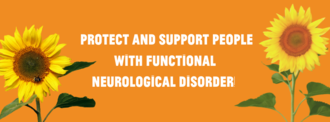


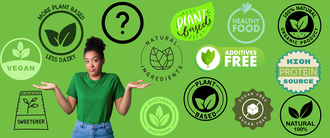


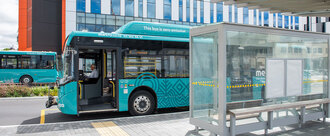
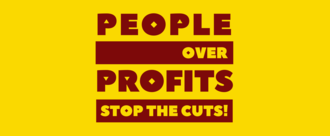.png)

